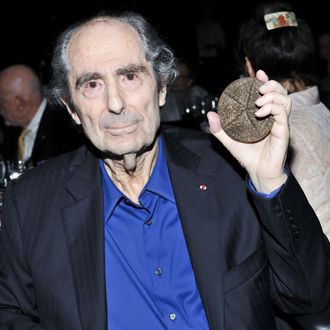
Renowned American novelist Philip Roth has died of congestive heart failure at age 85. The New York Times confirmed the news, citing the authorÔÇÖs close friend Judith Thurman.
Born in Newark, New Jersey, as the grandchild of immigrants from Eastern Europe, Roth spent his early years in the cityÔÇÖs Weequahic neighborhood, which his later writings would return to again and again. After abortive stints in the Army and academia, Roth turned to writing in the late 1950s; his first collection of stories, Goodbye, Columbus, won the National Book Award and introduced many of his most enduring themes, including sexual anxiety, classism, and the tension between Jewish identity and assimilation.
RothÔÇÖs breakthrough came with his fourth novel, 1969ÔÇÖs PortnoyÔÇÖs Complaint, an explicit account of its narratorÔÇÖs ÔÇ£extreme sexual longings, often of a perverse nature.ÔÇØ The following decades saw him introduce more semiautobiographical altar egos, particularly Nathan Zuckerman, narrator of nine of RothÔÇÖs books, and David Kepesh, who on one occasion turns into a human breast. In the 1990s, Roth began the metafictional conceit of writing novels narrated by ÔÇ£Philip Roth,ÔÇØ further blurring the line between his life and his work.
Long after his contemporaries in postwar literature had died or faded, Roth kept writing at a prolific pace. His novel American Pastoral won the Pulitzer Prize for Fiction in 1998, and, in 2005, he became only the third living writer to have his books added to the Library of America. He retired from writing in 2012. He was married twice ÔÇö first to Margaret Martinson, who inspired the female characters in much of his work; the second time to the actress Claire Bloom, who, after their divorce, published a memoir painting Roth as a cruel and manipulative husband.


